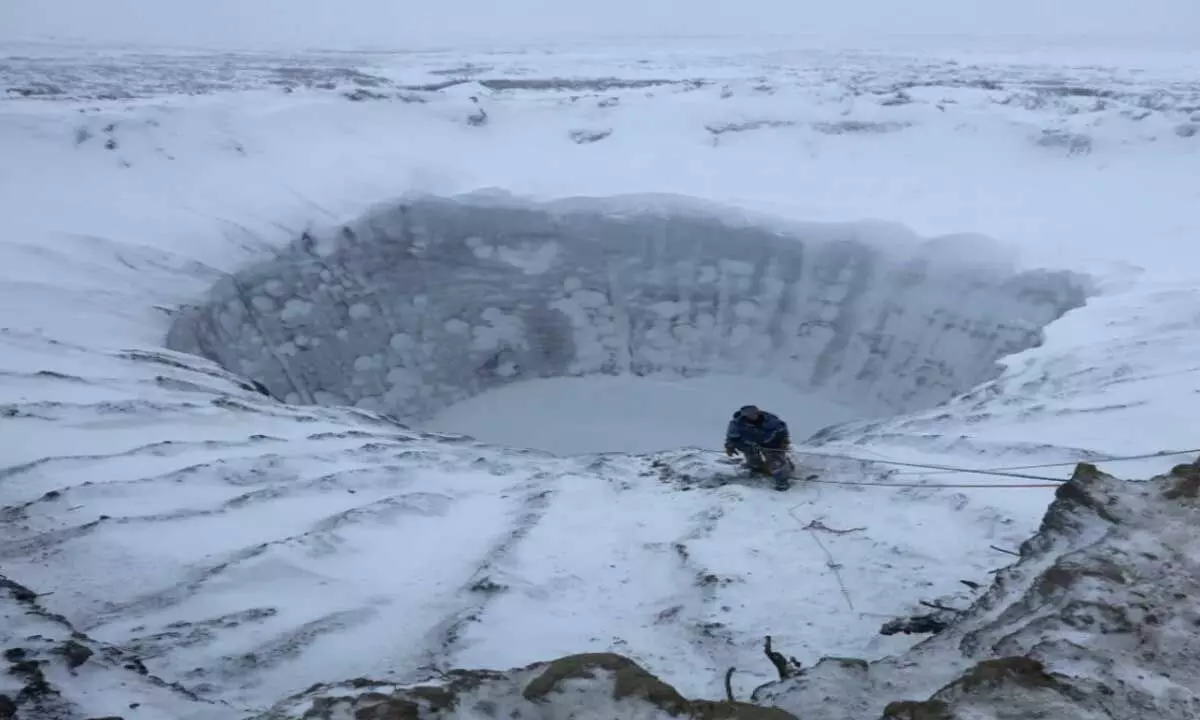48,500-Year-Old "Zombie Virus" Buried In Ice Is Resurrected By Scientists

The potential revival of a virus could infect animals, humans, researchers said. (Representational)
- Researchers that recovered nearly two dozen viruses, including one that was frozen under a lake more than 48,500 years ago
- They discovered that 13 new diseases, which they resurrected and classified as "zombie viruses," continued to be contagious despite spending many ages frozen in the earth.
Researchers that recovered nearly two dozen viruses, including one that was frozen under a lake more than 48,500 years ago, believe that the thawing of ancient permafrost caused by climate change may provide a new threat to people.
Researchers from Europe analysed prehistoric samples taken from permafrost in Russia's Siberia. They discovered that 13 new diseases, which they resurrected and classified as "zombie viruses," continued to be contagious despite spending many ages frozen in the earth. The thawing of permafrost brought on by atmospheric warming has long been predicted by scientists to accelerate climate change by releasing methane and other previously contained greenhouse gases. Less is known about its impact on latent infections.
Due to the strains they selected, namely those able to infect amoeba microorganisms, the team of researchers from Russia, Germany, and France claimed the biological danger of reanimating the viruses they analysed was "absolutely low." They cautioned that their findings can be expanded to indicate the threat is genuine, saying that the possible rebirth of a virus that might infect humans or animals is considerably more problematic.
It is therefore conceivable that ancient permafrost may unleash these unidentified viruses upon thawing, scientists stated in a study that it has not yet been peer-reviewed. They also pose the question of how long these viruses might remain contagious after being exposed to outside circumstances and how likely it will be for them to come into contact with and infect a suitable host during that time.
They claimed that as a result of global warming, the risk is certain to rise as permafrost thawing continues to accelerate and more people move to the Arctic as a result of industrial activity.











